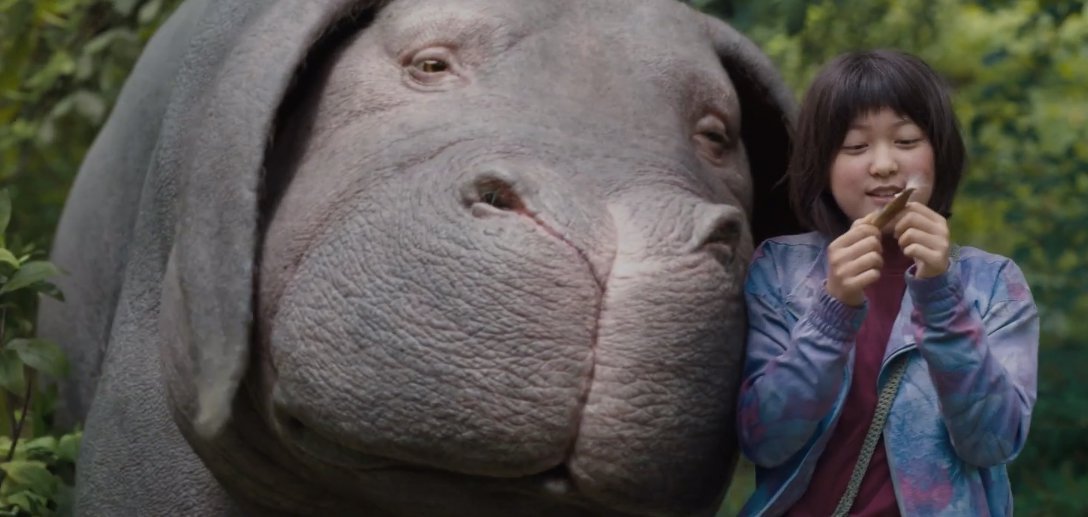Okja movie takes on GMOs, factory farms

By Arianne Pfoutz
Published: December 25, 2017
Category: The Organic & Non-GMO Report Newsletter, Movie Review
This movie is nearly as miraculous as its two main characters, a young girl named Mija and her pet genetically modified pig, Okja. It’s a good vs. evil story: GM animals are a bad idea, but not as bad as the corporations propagating them. But Okja manages to avoid cliché and the predictable outcome. Its sentiments are real, and the emotions several scenes evoke caught me off-guard (I’m talking sudden, spontaneous tears).
Mija (An Seo Hyun) lives with her grandfather in the paradisal, lush South Korean mountains. He was selected as one of 26 farmers to raise a GM pig; after ten years, the “best” pig would be paraded around the streets of New York as a publicity stunt by the biotech giant Mirando, which would then market its delicious meat. Tilda Swinton plays the femme terrible with appropriate satirical effect; she’s trying to improve Mirando’s image, tarnished by a father renowned for creating napalm. She knows her piglets aren’t non-GMO, as advertised –quite the opposite. They’re bred to taste delicious and excrete minimally, a small-footprint miracle of Nature coupling with Science.
Okja isn’t a little pet—a very large hippopotamus with a canine snout is a more apt description. She frolics playfully with Mija in the hills and is smart, endearing, and loyal. An orphan, Okja has become everything to Mija.
The frenzy begins when the Mirando crew comes ten years later to evaluate Okja, and take her back to New York. What follows is a helter-skelter romp containing the usual elements of good guys attempting to thwart greedy and deceptive ones – replete with high-powered truck chase scenes, activists (the Animal Liberation Front, an endearing, eccentric group of bold bumblers), near-catastrophes, and a satisfying if slightly mysterious denouement.
Okja manages to convey the emotional intensity the GMO issue can evoke—the factory farm/slaughterhouse scene is horrific—without oversimplifying it. And Okja’s endearing appeal can’t negate the fact that she is a product of genetic engineering…or was it the magical relationship with Mija that shaped her? Ironically, it is an artifact of gold that ultimately saves Okja and allows them both to return home—can money buy any—and everything?
The film is thought-provoking. It is genuinely and surprisingly moving, a showcase for the cinematic flair of its director, Bong Joon-ho. Humor is used brilliantly to cut the heaviness. While portrayal of the “goods” and “bads” can veer into stereotype, Mija is rock-solid: brave, genuine, ingenuous but savvy. And Okja possesses a charm many humans would do well to match.




